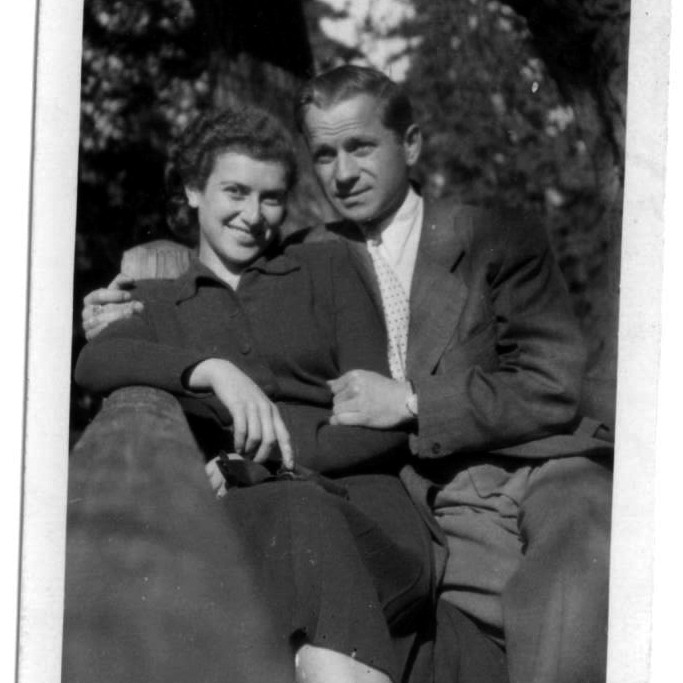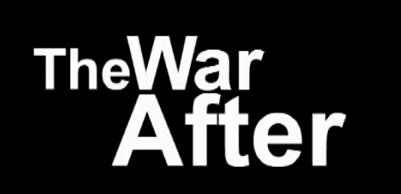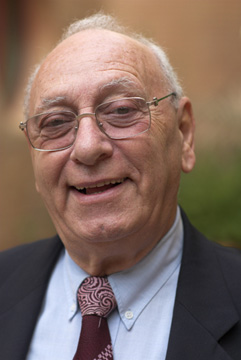
Directors: Joshua Faudem
Writer: Joshua Faudem and Lauren Sabel
Producers: Karla Stojakova, Avi Bohbot
Languages: German, Czech
Source: Axman Production, Chaos Films
Production Status: In Development, Raising Funds
Story Overview
It is 1942 Prague, and World War II and Nazi occupation is at its height. When the Neubower family receives an unexpected knock on their door, they are worried. The Neubower’s are Jews living in constant fear and uncertainty. The man at the door is Oswald, a young Czech-German soldier. But neither are aware of the other’s true identity. Oswald came simply in search for a spare bedroom. But he stays for something much more profound: a love at first sight encounter with the Neubower’s 19-year-old daughter, Margit.
For a year, the routine is the same: Oswald changes in the hallway from his army uniform into civilian clothes before entering the Neubower household. He alternates between identities because he respects the Neubowers, and likewise they appreciate the food rations and protection he provides. Oswald respects the family so much, that he hides his true feelings for Margit. He channels his love into creating beautiful drawings of her. When Margit discovers his sketchbook, their undying love for one another is hidden no more.
 Curfew laws prohibit Jews from leaving their houses after 6 pm. But Oswald and Margit’s romance cannot continue to be confined within the walls of the Neubower home. Oswald so desperately wants to date Margit. He wants to walk in the park with her, take her to the movies, and enjoy her company freely. He figures nobody will suspect that a Jew is in the arms of a German soldier, and thus Oswald gently takes off Margit’s yellow star and puts it in his pocket.
Curfew laws prohibit Jews from leaving their houses after 6 pm. But Oswald and Margit’s romance cannot continue to be confined within the walls of the Neubower home. Oswald so desperately wants to date Margit. He wants to walk in the park with her, take her to the movies, and enjoy her company freely. He figures nobody will suspect that a Jew is in the arms of a German soldier, and thus Oswald gently takes off Margit’s yellow star and puts it in his pocket.
The romance ends when a deportation notice arrives at the Neubower’s home, informing the family they are being re-located to Therezienstadt. Edvard, a family friend and respected doctor in Prague, tries using his status to save the family. It is unsuccessful. Oswald tries saving the family too, but can only save Margit. She is extremely torn over who she must decide to abandon. Her mother and father tell her to stay with Oswald, but in the end she decides she cannot leave her family. Completely heartbroken, Oswald and Margit’s love will have to survive if they ever want to see each other again.
At Therezeinstadt, Margit is assigned to work at the train station’s platform, abiding by a list of Jews to send to Auschwitz. One day Margit sees her family’s names on the deportation list. Margit’s boss lies to her saying that he will try to free them from the list even though he knows it is impossible. The next day, Margit is waiting for her family to be taken off the train when it starts to leave the station. Her family members scream Margit’s name as she chases alongside. Her boss grabs her and holds her back. She becomes powerless in the destiny of her only remaining loved ones. For the rest of her life Margit will not forgive herself for not being able to save her family.
It is 1945, the war is over and Prague has been liberated by the Red Army. Upon liberation from a steel factory at a work camp near Auschwitz, Margit – bone thin, alone and sick with typhus – returns to Prague. She goes to the Jewish community to see if there is any news about her family, but no such records exist. One of the first people she goes to is her father’s old business partner, whom she quickly discovers has taken advantage of the Neubower family by becoming wealthy from their forgotten valuables. He throws Margit out of his new apartment, but gives her the only thing that remains from Margit’s former life: a family photo album.
Luckily, Margit finds Edvard to welcome her into his home. Edvard is the only trustworthy person in Margit’s life, and becomes like a father to her. Every night they sit around the radio waiting to hear the names of returned refugees.
 When all other Czech-Germans are being deported from Czechslovakia, Oswald comes back. He has just escaped an American POW camp, and has crossed Europe in a desperate search to find his lost love Margit. In Prague he first visits her old apartment, which is occupied by another family. He then goes to the Jewish community, who give him Edvard’s address. Dressed in old, dirty civilian clothes, Oswald knocks on the door. Margit opens. Oswald has spent days searching and years waiting for this very moment, and as their eyes meet, love at first sight happens for a second time.
When all other Czech-Germans are being deported from Czechslovakia, Oswald comes back. He has just escaped an American POW camp, and has crossed Europe in a desperate search to find his lost love Margit. In Prague he first visits her old apartment, which is occupied by another family. He then goes to the Jewish community, who give him Edvard’s address. Dressed in old, dirty civilian clothes, Oswald knocks on the door. Margit opens. Oswald has spent days searching and years waiting for this very moment, and as their eyes meet, love at first sight happens for a second time.
Oswald is warmly welcomed into Edvard’s home. He warns Oswald of the turbulent political situation in Czechoslovakia: The Russian Communists have a stronghold on the country, and the Czech people have turned violently against Czech-Germans. Oswald desperately wants to leave. But Margit cannot; she insists her family will return. Oswald, out of love for Margit, agrees to stay, but his true identity now needs to be concealed.
In Margit’s bedroom she shows Oswald the only sentiment she has left from the war: the half-full photo album of her family. She tells Oswald that she wants to complete the album, but also shares terrible news: the typhus has made her barren. Any emotion Margit has left is now suddenly drained. As Oswald holds Margit tightly against his chest, tears streaming down her face, he tells her that it is not children he needs… she is.
 Oswald convinces Margit to visit his mother, Rosa, who was deported to Austria a few months prior. Oswald’s father was sick and died during the war, and Oswald has not seen his grieving mother since. Margit is nervous, but grants Oswald this favor anyway.
Oswald convinces Margit to visit his mother, Rosa, who was deported to Austria a few months prior. Oswald’s father was sick and died during the war, and Oswald has not seen his grieving mother since. Margit is nervous, but grants Oswald this favor anyway.
As they cross the border into Austria, Oswald asks Margit to marry him. She at first says no, as it is unfair to Oswald that she cannot have children. But when he asks again, she says yes.
Rosa is immediately distant from Margit when she picks them up at the train station. Rosa thinks Margit is wrong for Oswald since she is Jewish, infertile, and stubborn for remaining in Prague.
At dinner, Oswald announces that he and Margit are engaged and will remain in Prague until Margit’s family returns home. Rosa escorts herself from the table. Later, Oswald and Rosa speak privately on the porch. Rosa says Margit is too emotionally destroyed to be a good wife. She also tells him Margit’s family is probably dead, and that she needs to face the realities of the war and world.
Margit overhears their conversation, and immediately packs her belongings to leave. But before she can do so, Oswald catches her and assures her they will leave the next day.
Upon returning to Prague, Edvard helps Margit and Oswald financially to build up their new life. Oswald gets a job at the National Theater, and they start constructing a cottage in the Prague countryside to live out the remainder of lives in secrecy. It is the first time that they have developed a routine as a married couple.
 It is now 1948. The radio spits out Communist propaganda: The democratic government has been overthrown for the better of the country. Martial law has been declared and the borders have been closed. Our great country is surrounded by enemies of the state.
It is now 1948. The radio spits out Communist propaganda: The democratic government has been overthrown for the better of the country. Martial law has been declared and the borders have been closed. Our great country is surrounded by enemies of the state.
Upon hearing the news, Oswald frantically starts packing but Margit still refuses to leave. Margit and Oswald’s relationship becomes strained because Margit’s dwelling on the past is affecting the outcome of their future.
When the Communists begin conducting show trials, Margit comes to terms with the realities of the situation. They are packed and ready to flee to Austria when Oswald’s good friend and co-worker turns them in.
Oswald and Margit are taken in for questioning by the police. They beat Oswald and insist he sign a pre-written confession stating that he fought for the Germans but Oswald refuses. Meanwhile, Margit is being verbally abused and interrogated in another room. She continues to insist that Oswald was taking care of his sick father during the war.
The officers promise Oswald they will get the records they need to prove he is lying. They reassign Margit and Oswald to jobs at a Communist steel factory and say that they will be watching them closely. A new routine for the couple develops.
Edvard is soon arrested for being a suspected Nazi sympathizer. During the war, an assassination attempt on Heydrich, the head of the Gestapo, left him in critical condition. Edvard, the head doctor, had to provide medical treatment. For this, Edvard will be tried, convicted and sentenced to death. Margit is shocked to hear this news. She visits a broken Edvard in jail. In their final meeting, Edvard explains that he was just doing his job, and Margit comforts him by whispering a secret she has.
Oswald now absolutely insists they leave Prague. But, again, Margit refuses. In a fit of anger he tells her that her family is dead. But she tells him that this is not the reason she cannot leave. Rather, the journey is too arduous for a pregnant woman. Oswald’s eyes fill with water; their dream of starting a family is being fulfilled.
Oswald and Margit stand over Edvard’s fresh grave. A small gathering of people bow their heads in condolence. Oswald frees his hand from Margit’s, and moves it onto her belly. They look up at each other, eyes meeting yet again.













 בסוף שנות העשרים בישראל חלה החרפה במערכת היחסים בין ערביי הארץ לבין מתיישביה היהודים (מאורעות תרפ”ט, המרד הערבי הגדול). המצב החדש יצר פגיעה ממשית בביטחונם האישי של המתיישבים היהודים, והביא לידי הכרה של ראשי היישוב, כי על כל נער ונערה, לדעת כיצד להתגונן בשעת צרה. כך הפכה ההגנה העצמית לשיעור הכרחי, ולמחנכת אופי לקראת הצטרפותם של בני הנוער לשירות ההגנה. גם המחסור בנשק ואיסור נשיאתו על ידי המנדט הבריטי, חייב מתן מענה לחיכוכים האלימים הגוברים והולכים עם האוכלוסייה הערבית בא”י. המשימה הוטלה על גרשון קופלר ז”ל, שכתב תוכנית אימונים שהורכבה משילוב של אגרוף וג’יאוג’יטסו, ונקראה “ספורט המגן”. שיעורים אלו הועברו לבני הנוער וגם לחברים בפלמ”ח. בעקבות צורך מבצעי בפלמ”ח נוסף פרק נוסף של שימוש במקלות, שבעצם היו ידיות של טוריה. שיעורים אלו זכו לשם הכללי קפא”פ – קרב פנים אל פנים. בשנת 1941 התקיים קורס מדריכי הקפא”פ הראשון, שמטרתו הייתה יישור קו בתכנים הנלמדים. חלק מתכניו של גרשון קופלר מאכלסים עד היום את הסילבוס של הקרב מגע. בשנת 1941 מונה גרשון קופלר להיות המדריך של כ”ג יורדי הסירה, וכחלק מדוגמא אישית, יצא למבצע אולם הוא לא חזר ביחד עם חבריו, וככל הנראה הסירה שלו הוטבעה על ידי צוללת גרמנית. מחליפו באותה עת בפלמ”ח היה יהודה מרכוס, אולם גם הוא נהרג בשנת 1942. כך נפתחה לאימי ליכטנפלד, שהגיע באותה שנה לארץ ישראל, הדרך אל ההגנה.
בסוף שנות העשרים בישראל חלה החרפה במערכת היחסים בין ערביי הארץ לבין מתיישביה היהודים (מאורעות תרפ”ט, המרד הערבי הגדול). המצב החדש יצר פגיעה ממשית בביטחונם האישי של המתיישבים היהודים, והביא לידי הכרה של ראשי היישוב, כי על כל נער ונערה, לדעת כיצד להתגונן בשעת צרה. כך הפכה ההגנה העצמית לשיעור הכרחי, ולמחנכת אופי לקראת הצטרפותם של בני הנוער לשירות ההגנה. גם המחסור בנשק ואיסור נשיאתו על ידי המנדט הבריטי, חייב מתן מענה לחיכוכים האלימים הגוברים והולכים עם האוכלוסייה הערבית בא”י. המשימה הוטלה על גרשון קופלר ז”ל, שכתב תוכנית אימונים שהורכבה משילוב של אגרוף וג’יאוג’יטסו, ונקראה “ספורט המגן”. שיעורים אלו הועברו לבני הנוער וגם לחברים בפלמ”ח. בעקבות צורך מבצעי בפלמ”ח נוסף פרק נוסף של שימוש במקלות, שבעצם היו ידיות של טוריה. שיעורים אלו זכו לשם הכללי קפא”פ – קרב פנים אל פנים. בשנת 1941 התקיים קורס מדריכי הקפא”פ הראשון, שמטרתו הייתה יישור קו בתכנים הנלמדים. חלק מתכניו של גרשון קופלר מאכלסים עד היום את הסילבוס של הקרב מגע. בשנת 1941 מונה גרשון קופלר להיות המדריך של כ”ג יורדי הסירה, וכחלק מדוגמא אישית, יצא למבצע אולם הוא לא חזר ביחד עם חבריו, וככל הנראה הסירה שלו הוטבעה על ידי צוללת גרמנית. מחליפו באותה עת בפלמ”ח היה יהודה מרכוס, אולם גם הוא נהרג בשנת 1942. כך נפתחה לאימי ליכטנפלד, שהגיע באותה שנה לארץ ישראל, הדרך אל ההגנה.














